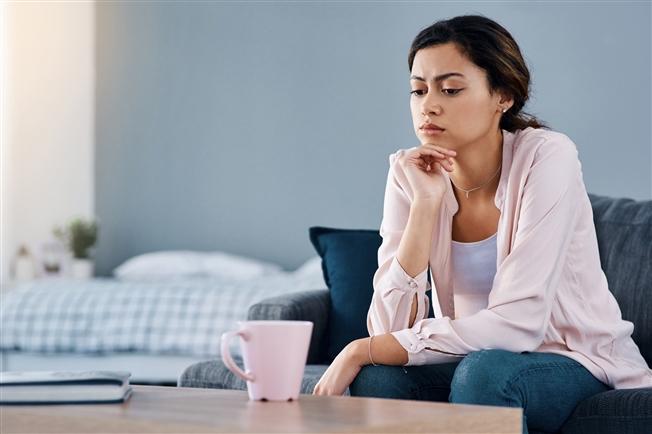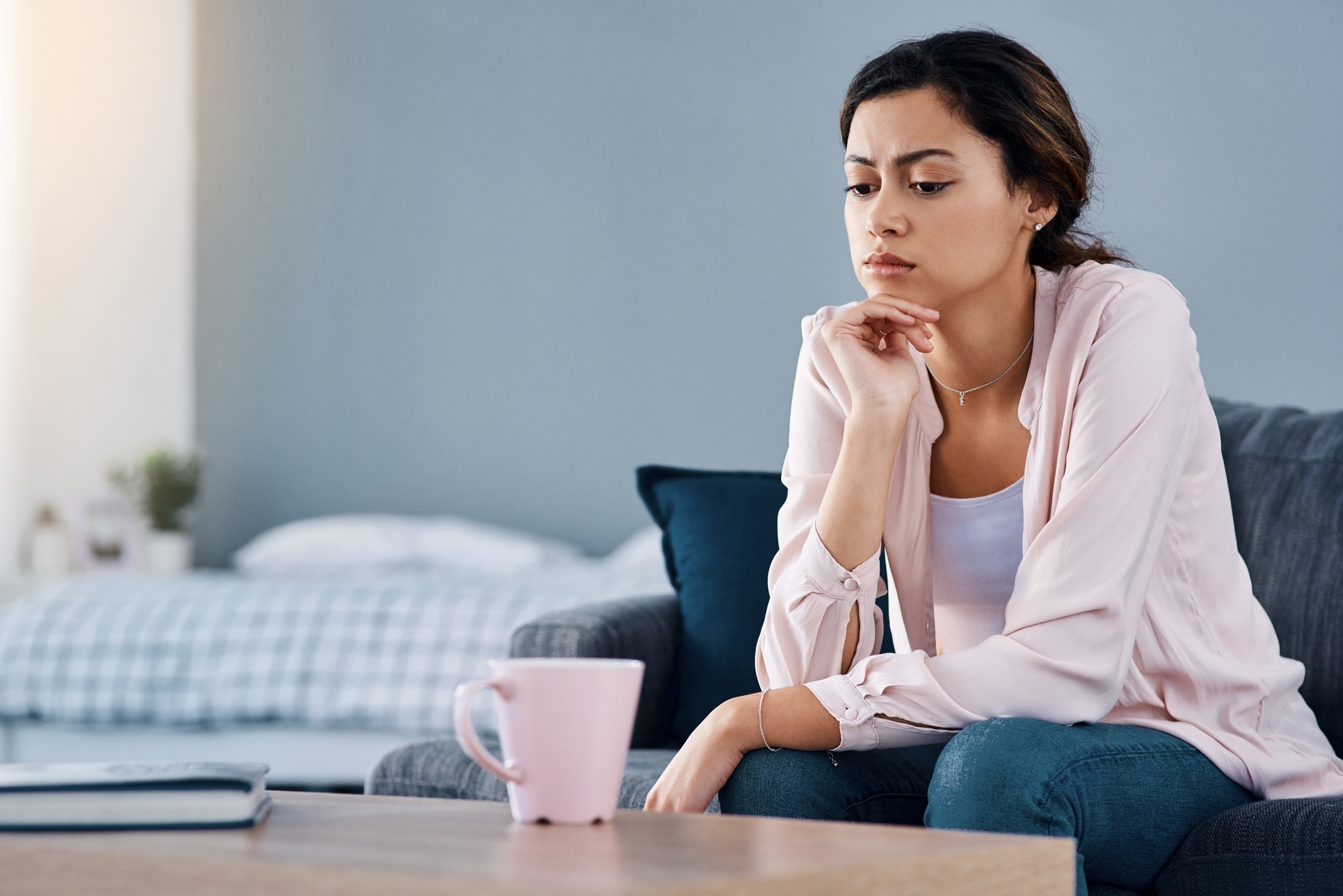How the skill of 'coping ahead' helped me deal with anxiety

By: Jennifer Kresz, LCSW at Women's Emotional Wellness Center
Most of the time, therapists—including myself—encourage our patients to stay present and remain in the moment. And, in the majority of cases, this advice is helpful: It reminds us to focus on the here and now and what is, rather than what was or could be.

But there are some events in our lives that can be so stressful that staying present feels impossible—when the stress or perceived stress of a situation becomes too much to bear. Instead of promising ourselves to remain calm and be present, we spend our days anticipating a disaster, dwelling on the negative possibilities and playing a dangerous game of "What if?"
I know that my patients experience this from time to time, and so do I. As a chronic overthinker, I, too, have faced these overwhelming thoughts of dread for future events and have spent a lot of time worrying about how they would negatively impact me. It wasn't until I learned the skill of coping ahead that I felt I had any ability to manage my anxiety and tendency to dwell on what I thought would be a catastrophe.
Coping ahead to manage anxiety
Coping ahead is a skill found in Dialectical Behavior Therapy (DBT). It's worked well for me because of my natural tendency to be a planner, and it's helped me to soothe myself and be more mindful. In turn, it's a skill that I often share with my patients to help them better tolerate distress.
Another way to think of coping ahead is to think about it as present you helping out future you. This can be as simple as recognizing areas in your life where you're facing repeated challenges and exploring what's within your control to change.
For example, when I recognized that mornings were a source of stress for me, I looked into this more deeply and found that rushing around to pick out an outfit for the day and pack my lunch were the main factors stressing me out each morning. Instead of just accepting that these were stressors for me, I used coping ahead to shift my behaviors to make my mornings a little bit more manageable. For me, this meant checking the weather forecast and choosing my outfit accordingly, as well as prepping my lunch the night before. It seems simple, but coping ahead is really like leaving a little gift for yourself by making dreaded events just a little bit easier.
The coping ahead skill has three parts to it: coping before, during and after a stressful event. The idea of this skill is to visualize yourself coping well with something that you would normally find stressful.
Practicing the coping ahead skill
Let's imagine you have an upcoming event where you'll see family or friends. Maybe you struggle to manage your anxiety when you're around this group because they don't respect your boundaries. Or maybe they pressure you to engage in behaviors or activities that compromise your values.
There are several ways you can practice the coping skill here, including:
Coping before the event
Plan to spend time with friends or family before the event who do respect you and make you feel valued. You might also want to spend time taking care of yourself whether by exercising, listening to music or meditating. It may be helpful to practice in front of a mirror, or even just visualizing yourself communicating and engaging effectively at the event.
Coping during the event
Bring a stress ball or other tool with you to the event that you might use should you become anxious. Try thinking of standard responses to questions they might ask you so that you feel less caught off-guard. Also, you might determine a safe space for yourself ahead of time, whether that's excusing yourself to go to the restroom, stepping outside or collecting yourself in your car. It's important to use other coping skills if you do step out and take a break during the event. This could mean doing some deep breathing, tensing and relaxing your muscles or using a positive affirmation.
Coping after the event
Have you ever left a stressful event feeling on edge and having a hard time processing? That's probably due to the spike in adrenaline that occurs when we are under stress. You might anticipate this happening and plan accordingly. Maybe plan to return home and watch a funny movie, take a walk or cook a comfort meal. Having an anticipated positive thing to look forward to after the event can go a long way in motivating us to do something that challenges us. Even something simple like planning to take your dog on a walk after the event, or setting aside a new flavor of tea to try, can be a way to help us to recognize that the challenges of the moment will pass. It can also be an opportunity to ground ourselves with something pleasurable.
You are your best advocate
Coping ahead has made it easier for me to manage anxiety, even in situations where the event I was anxious about did not turn out to be as challenging as I feared. It's given me a sense of mastery and made me feel more competent and capable of handling challenges in the moment. It's given me a sense of power and confidence to handle whatever life throws at me and to see myself as more skillful than I have given myself credit for. Coping ahead can really be a way of thinking strategically—in a way that makes life just a little bit more manageable. I hope this skill does this for you as well, especially in uncertain times.
I encourage you to also remember that most situations are optional. If you find that something brings you a great deal of unnecessary stress, you have the choice of whether or not to participate. It's okay to opt out of things that can be triggering for you. But for situations that you cannot avoid—a stressful work meeting, a family gathering—coping ahead can help.
Getting help with anxiety
If you're struggling with anxiety, we can help. Main Line Health serves patients at hospitals and health centers throughout the suburbs of Philadelphia, including the Women's Emotional Wellness Center which offers a host of outpatient psychotherapy groups that address coping with anxiety.
To schedule an appointment with a specialist at Women's Emotional Wellness Center, call 1.888.CARE.898 (227.3898).